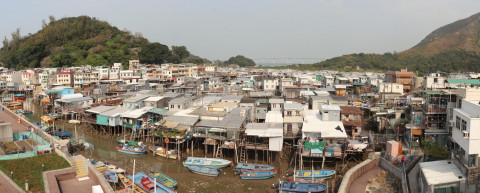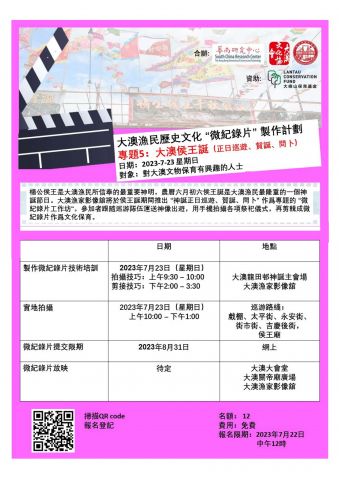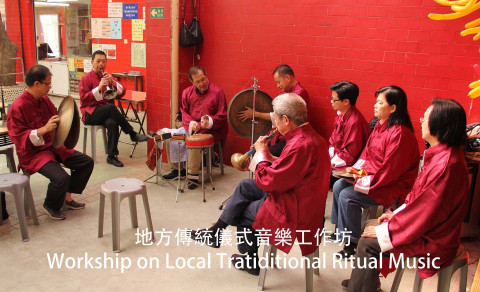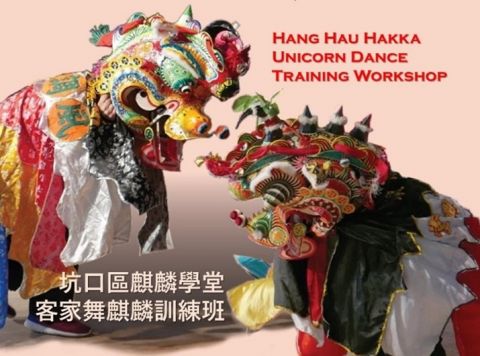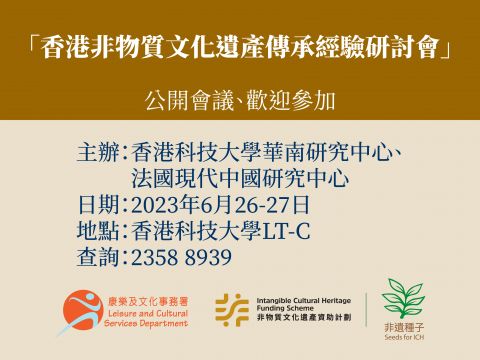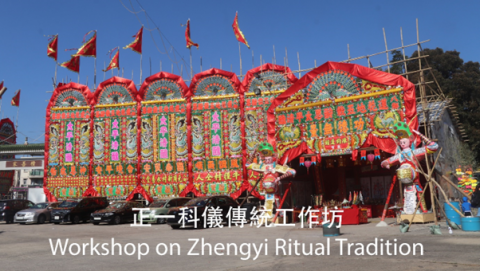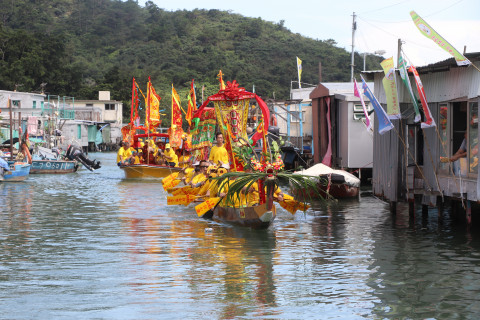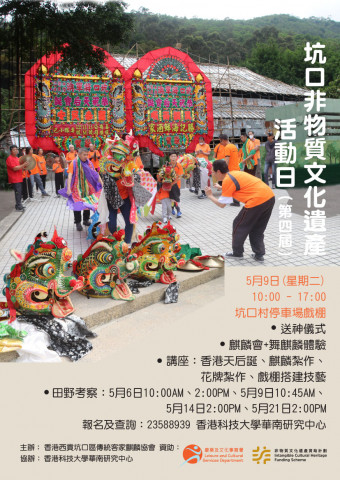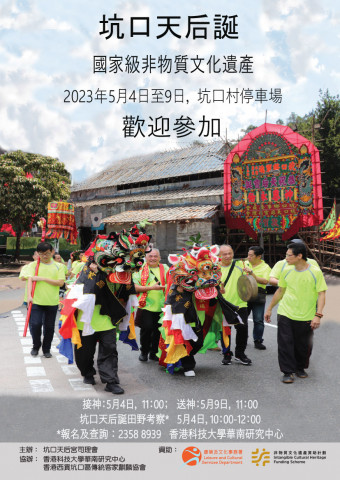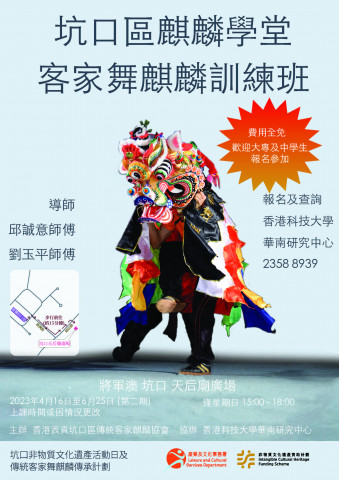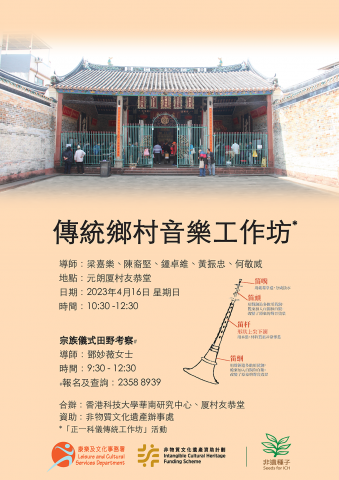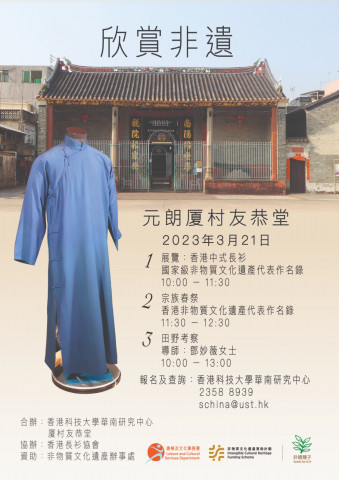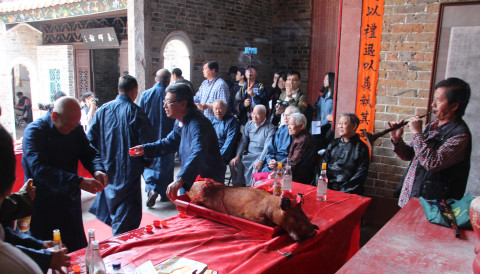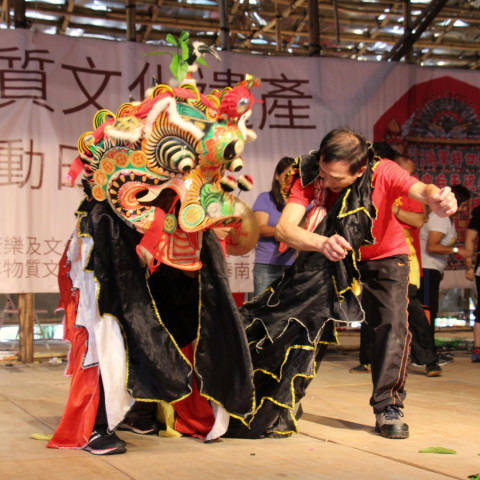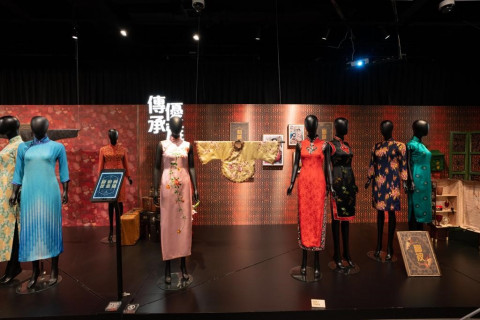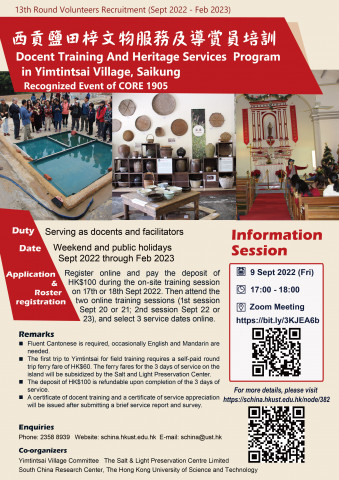楊公侯王是大澳漁民所信奉的最重要神明,農曆六月初六侯王誕是大澳漁民最隆重的一個神誕節日。大澳漁家影像舘將於侯王誕期間推出 “神誕正日巡遊、賀誕、問卜” 作爲專題的 “微紀錄片工作坊“。參加者跟隨巡游隊伍運送神像出遊,用手機拍攝各項祭祀儀式,再剪輯成微紀錄片作爲文化保育。
South China Research Center and the Joint Association of Traditional Hakka Unicorn in Hang Hau and Sai Kung jointly organize this Hakka unicorn dance workshop at HKUST to foster understanding and participation in local heritage.
The Tai O dragon boat water parade is a traditional activity unique to the local community. During the Dragon Boat Festival, the three fishermen’s associations in Tai O, namely Pa Teng Hong, Sin Yu Hong and Hap Sim Tong, organise the dragon boat water parade. The associations’ dragon boats tow sacred sampans carrying deity statuettes in a parade through Tai O waters to invoke blessings for well-being and peace. This has been practised for a century or more.
Jointly organized by South China Research Center and the Joint Association of Traditional Hakka Unicorn in Sai Kung and Hang Hau, and funded by the Intangible Cultural Heritage Office, the 4th "Hang Hau Intangible Cultural Heritage Activity Day" (ICH Day) will be held on May 9, 2023 (Tuesday) at the temporary bamboo theater in the parking lot of Hang Hau Village. Students from tertiary institutions are invited to join the "Service-learning Program" on the ICH Day to assist in the preparation work, so as to learn about the local community and traditional knowledge of intangible cultural heritage, and at the same time understand the relationship between local culture and intangible cultural heritage.
The traditional Hakka Unicorn Dance has been practiced for more than 200 years. The Hakka people believe that the Chinese unicorn, qilin, is an auspicious animal that can ward off evil and bring them good luck. They perform unicorn dances during Lunar New Year, weddings, birthday parties, and communal festivals, as well as in enlightening rituals for new houses and renovated ancestral halls. After settling in Hong Kong’s New Territories, the Hakka people have developed their style of music and sequence of movements for the unicorn dance. In 2014, the Hang Hau Hakka unicorn dance was inscribed onto the fourth national list of ICH.
South China Research Center and the Joint Association of Traditional Hakka Unicorn in Hang Hau and Sai Kung jointly organize this Hakka unicorn dance workshop at HKUST to foster understanding and participation in local heritage.
The traditional Hakka Unicorn Dance has been practised for more than 200 years. The Hakka people believe the Chinese unicorn, the qilin, is an auspicious animal that can ward off evil and bring good luck. So, on all celebratory occasions such as Chinese New Year, weddings, birthday parties, the rehabilitation of an ancestral hall, moving into a new home, welcoming guests, the jiao festivals and birthdays of deities, there would invariably be a unicorn dance. Since the Hakka people had brought it to Hong Kong and fused it with local traditional music and martial arts, the unicorn dance has developed its own styles and sequence of movements. Hang Hau Hakka unicorn dance was inscribed onto the fourth national list of ICH in 2014.

